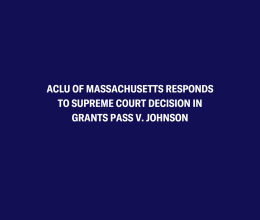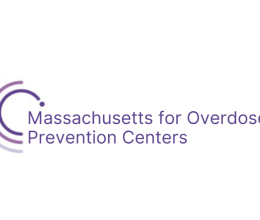
VICTORY! On June 7, 2019, the Federal Bureau of Prisons agreed to provide DiPierro with medication for her addiction treatment during her incarceration. The final settlement marks a first-of-its-kind victory. Read more.
The ACLU of Massachusetts, together with Goodwin Procter, is challenging the Federal Bureau of Prisons’ policy of denying medication for addiction treatment (MAT) to incarcerated people who are diagnosed with opioid use disorder, as applied to an individual client.
The lawsuit was filed on behalf of Stephanie DiPierro, who has been diagnosed with opioid use disorder but has long been in recovery with the help of doctor-prescribed medication. With the help of her prescription methadone, DiPierro has been in active recovery for years. After pleading guilty to federal offenses relating to benefits fraud, DiPierro now faces imprisonment at a federal Bureau facility, where they prohibit methadone maintenance treatment for all non-pregnant inmates.
People with opioid use disorder who are denied their medication suffer painful withdrawal. They also face an increased risk of relapse, overdose, and death. Despite medical consensus that MAT is the standard care for opioid use disorder, the federal Bureau of Prisons categorically and arbitrarily denies MAT to non-pregnant inmates with opioid use disorder during their incarceration, including those who arrive with a prescription for such medication and are already in sustained recovery as a result of it.
The lawsuit follows the ACLU’s Pesce v. Coppinger. On November 26, 2018, a federal judge required Essex County correctional authorities to provide a Massachusetts man with continued access to his methadone while he was in their custody.
Media:
- Boston Globe: Federal prison agrees to provide methadone to inmate from Mass.
- WGBH: Mass. Woman Wins Lawsuit To Continue Methadone Treatment In Prison
- Reuters: Woman with opioid addiction to get regular methadone treatment in prison
- MassLive: Massachusetts woman with opioid addiction becomes the first to win approval for continued methadone treatment while in prison
- New York Times: Want to Reduce Opioid Deaths? Get People the Medications They Need
- Boston Globe: Suit seeks methadone treatment for federal inmate
- The Fix: Woman Sues To Continue Methadone Treatment In Prison
- ACLU of Massachusetts: Federal prisons are denying addiction treatment to people behind bars
- New York Times: Methadone Helped Her Quit Heroin. Now She’s Suing U.S. Prisons to Allow the Treatment.







